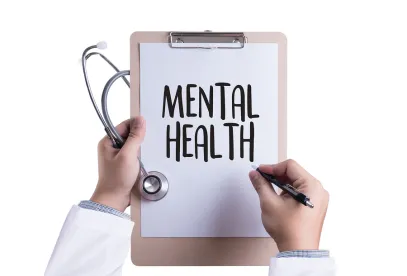As part of an increasing trend towards regulation of behavioral health, a pair of new laws have been adopted that will impact certain California behavioral health providers and laboratories, with two proposed companion laws vetoed by Governor Newsom but expected to return.
AB 919, which is effective January 1, 2020, restricts the extent to which behavioral health providers can offer housing and transportation as a component of their services. California Department of Health Care Services (DHCS)-certified outpatient treatment providers and laboratories that lease, manage or own housing must maintain separate housing contracts providing that clients are responsible for housing costs, independent of any insurance benefits.
AB 919 also (1) limits the ability of outpatient treatment programs to provide discounted housing and transportation services, including requiring clients to enter into a repayment plan for any subsidized services and (2) limits transportation services to less than 125 miles for ground transportation, with air transportation required to include a return ticket for one year following discharge. We note that AB 919 diverges from similar, but stricter, provisions of the Federal Anti-Kickback Statute, highlighting the need for impacted providers and labs to be mindful of both federal and state requirements in their business practices.
AB 919 requires DHCS to establish an enforcement program and allocate staffing resources for oversight and guidance, and provides that violations may result in license suspension or revocation.
Further, AB 290 limits the ability of California health care providers to pay the cost of health insurance premiums, whether directly or via associated nonprofit entities. Payment of patient health insurance premiums has been a common practice among dialysis treatment providers, but this law will also be impactful to behavioral health providers who engage in this practice.
In addition to AB 919 and AB 290, the California Legislature passed AB 920 and SB 589; both of which were subsequently vetoed by Governor Newsom. AB 920 would have required outpatient alcoholism or drug abuse recovery or treatment programs to become licensed by DHCS, as opposed to the current voluntary certification status of these programs. We believe this bill will be re-introduced in the 2020 Legislative Session in a revised form.
Also passed by the Legislature, but vetoed, Senate Bill 589 would have prohibited licensed and unlicensed substance abuse treatment facilities, sober living residences and marketers from making false or misleading statements about a provider’s services or geographical locations. Similar to AB 920, we believe this bill will be re-introduced in a revised form in 2020.
What Should California Substance Use Disorder Providers and Labs Do Next?
-
Become familiar with the requirements of AB 919 and AB 290, along with forthcoming DHCS guidance on these new laws.
-
Review policies and procedures relating to offering housing and transportation, or funding of health insurance premiums, to existing and potential clients to ensure compliance with California laws.
-
Review arrangements with third parties that provide transportation or housing on behalf of a treatment center or to treatment center clients.
-
Consider training for appropriate personnel, management and ownership to ensure compliance with new laws.
-
Remain alert for further regulatory and legislative developments that may impact business practices.






 />i
/>i
